The World Press Photo Contest (WPP) has announced the 2022 regional winners, a new pre-grand prize competition segment consisting of six global regions with the aim of attracting more diversity in stories. Australia is part of Southeast Asia and Oceania region, with Matthew Abbott winning the Stories category for his series, Saving Forests with Fire.
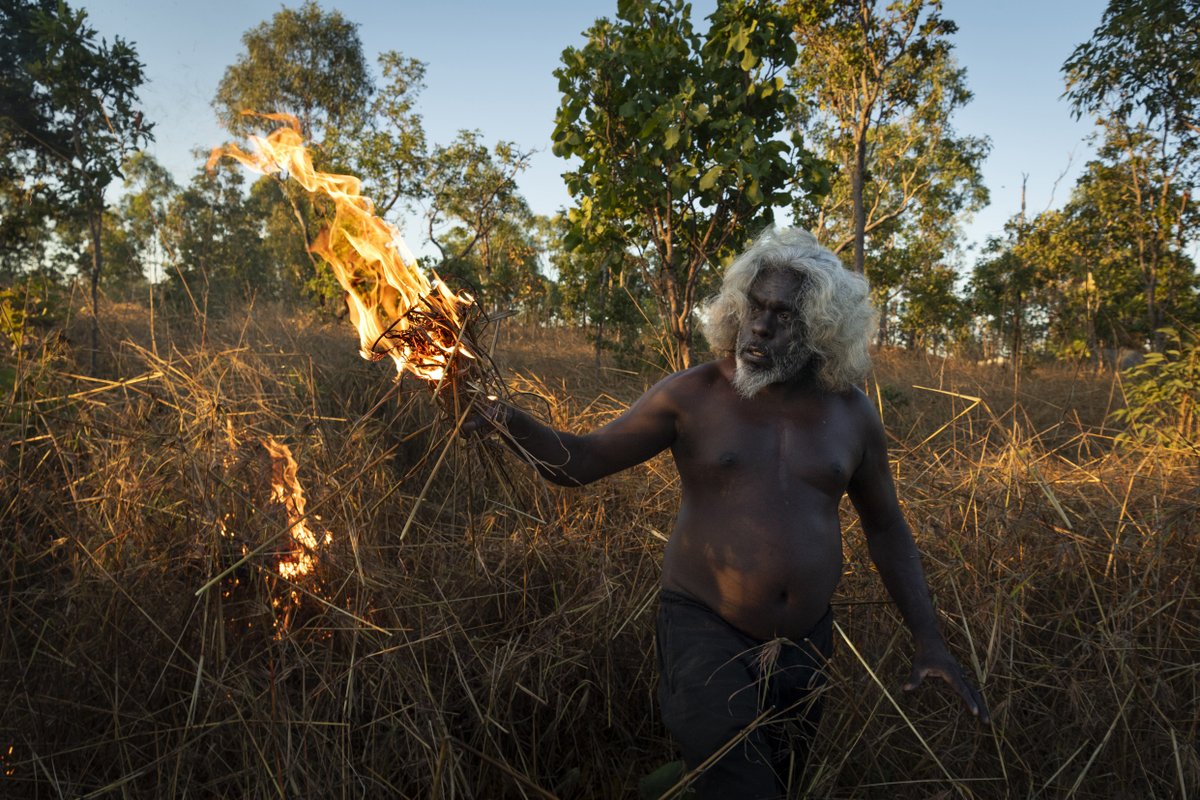
The WPP contest director, Anna Lena Mehr, has been concerned about ‘the imbalance in representation among entrants, stories and winners in our contest’. Last year only seven percent of entries came from South America, five percent from Southeast Asia and Oceania, and three percent from Africa.
‘This is in no way representative of all the incredible talent in photojournalism across the world,’ Mehr stated in an announcement last year about the new regional winners format.
This is how the new contest format works: Photos are entered by the region in which they’re shot, rather than the photographer’s nationality. For example an Australian photographer can win a category in the Africa region if they photographed the project in that continent. Regional winners are picked by a dedicated jury based in that region, and a global jury picks the grand prize winners from this pool of award-winning regional entrants, to be announced on April 7.
‘It is exhilarating to see the way in which the new regional contest set up has produced the changes that we were hoping for,’ said WPP Foundation executive director, Joumana El Zein Khoury. ‘Changes that we believe will offer different perspectives on, and a deeper connection to, photojournalism and documentary photography from all over the world.’
While Australian photographers occasionally pocket a WPP category win, they only typically include Australian stories when there is a visceral global news event. And for a country like Australia, this usually surrounds a natural disaster, such as the catastrophic 19/20 East Coast bushfires, where were masterfully documented by local photojournalists.
In theory this new format will award and provide exposure to less dramatic local stories that are still award worthy, such as the following project by Abbott.
Abbott’s Saving Forests with Bushfires explores how Indigenous Australians in Arnhem Land strategically burn land to protect their environment, a practice which has lasted for tens of thousands of years. It’s admittedly loosely connected to bushfires, as noted by the judges, but it’s a vastly different story about traditional land management.
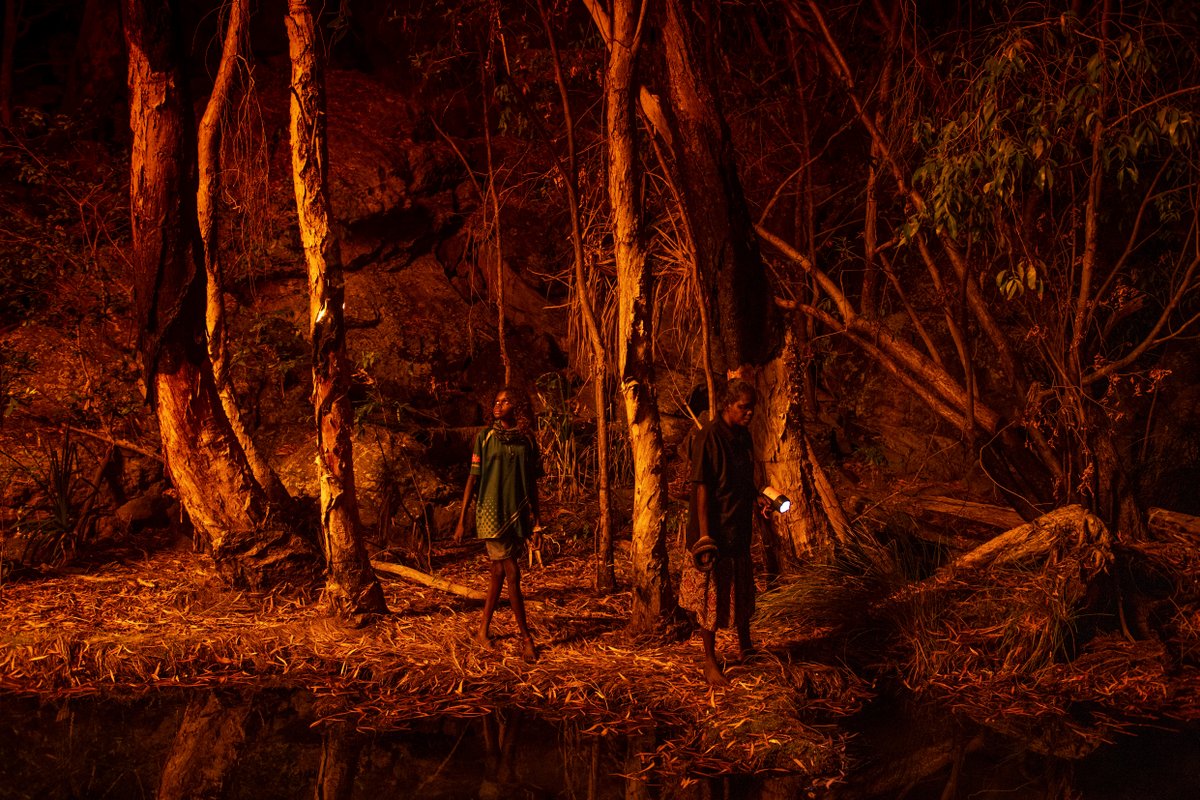
‘In a practice known as cool burning, fires move slowly, burn only the undergrowth, and remove the build-up of fuel that feeds bigger blazes,’ Abbott explains in the WPP gallery. ‘As a result, these traditional burns prevent larger, more destructive fires from occurring in the hotter, dryer months of the year.
‘The Nawarddeken people, one the traditional owners of West Arnhem Land in the north of Australia, see fire as a way to rejuvenate the land, and use it as a tool to manage their 1.39 million hectare homeland. Warddeken rangers use traditional knowledge and combine it with contemporary technologies such as aerial burning and digital mapping to prevent wildfires. In doing so, they have successfully decreased the amount of climate-heating CO2. The emissions saved earn carbon credits, and the proceeds are invested in the community and environmental projects.’
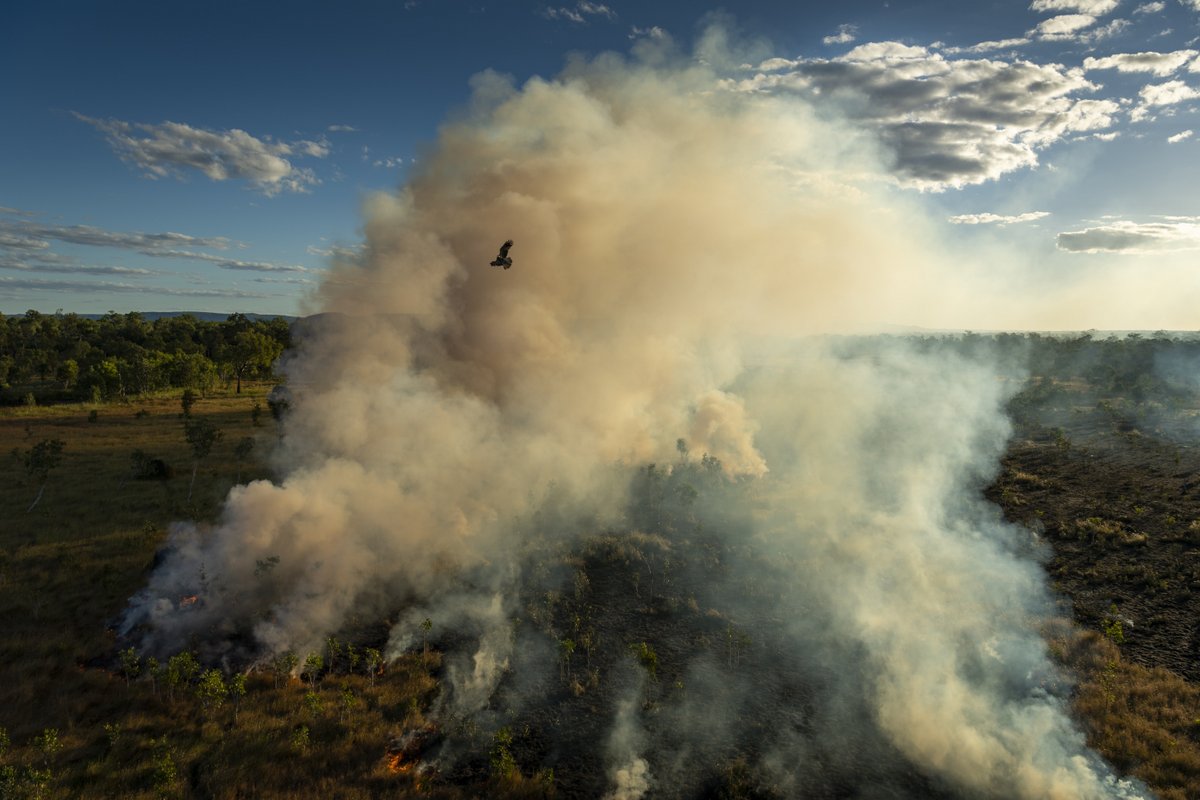
Abbott once lived in West Arnhem Land, and according to the WPP became accepted into the local community. He views the Warddeken rangers’ solution to wildfires as important ‘due to the climate crisis and the intensive bushfires Australia has seen in recent years’.
The jury notes that Abbott’s work ‘makes us question what the world would look like if we had listened to ancient knowledge’. And doesn’t ‘exoticise the Nawarddeken people…but rather highlights the crucial value of their knowledge in a comprehensive review’.
‘While each image is strong on its own, intentional editing, strong pacing, and the sequencing of images illustrates how culture and the environment are inseparable in indigenous cultures. Furthermore, the story provides a refreshing balance of humans and nature in a way which forwards a perspective of interconnectedness and the role of humans as stewards of the land.’
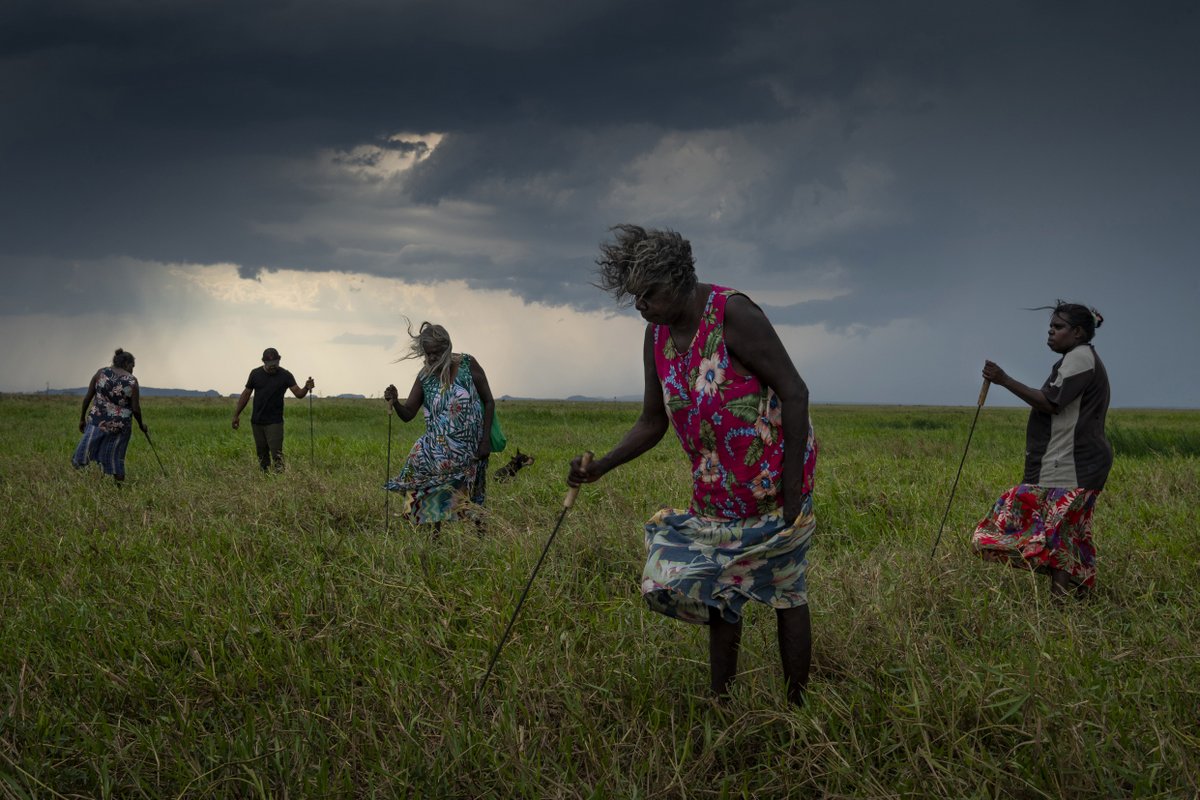
There are more photos in Abbott’s winning series, which can be viewed in WPP’s regional winners gallery.
Here’s the full list of winners, and the Singles category winner for each region.
AFRICA
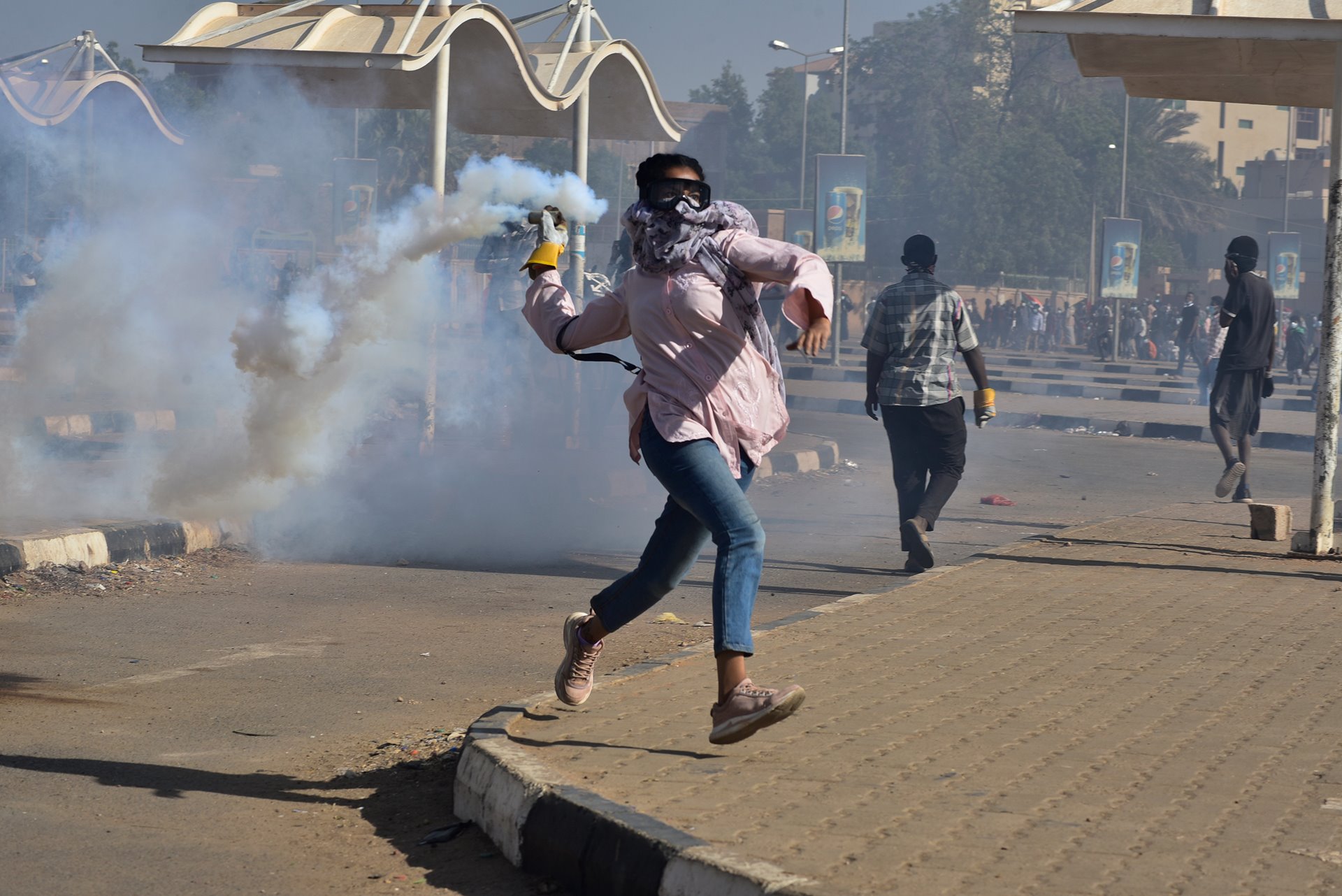
On 30 December, demonstrators marched through the Sudanese capital Khartoum, and in the neighboring cities of Omdurman and Bahri, demanding that the military play no role in a transitional government, and for political power to be transferred to civilian authorities. The protests were brutally suppressed. Reuters reported that five people were killed in the protests. Photo: Faiz Abubakr Mohamed.
Singles
Sudan Protests
Faiz Abubakr Mohamed, Sudan
Stories
Afraid to go to School
Sodiq Adelakun Adekola, Nigeria, Agence France-Presse
Long-Term Projects
The Zebu War
Rijasolo, Madagascar/France, Riva Press
Open Format
The Longing of the Stranger Whose Path Has Been Broken
Rehab Eldalil, Egypt
Honorable Mention
Searching for Peace Amidst Chaos
Amanuel Sileshi, Ethiopia, Agence France-Presse
ASIA
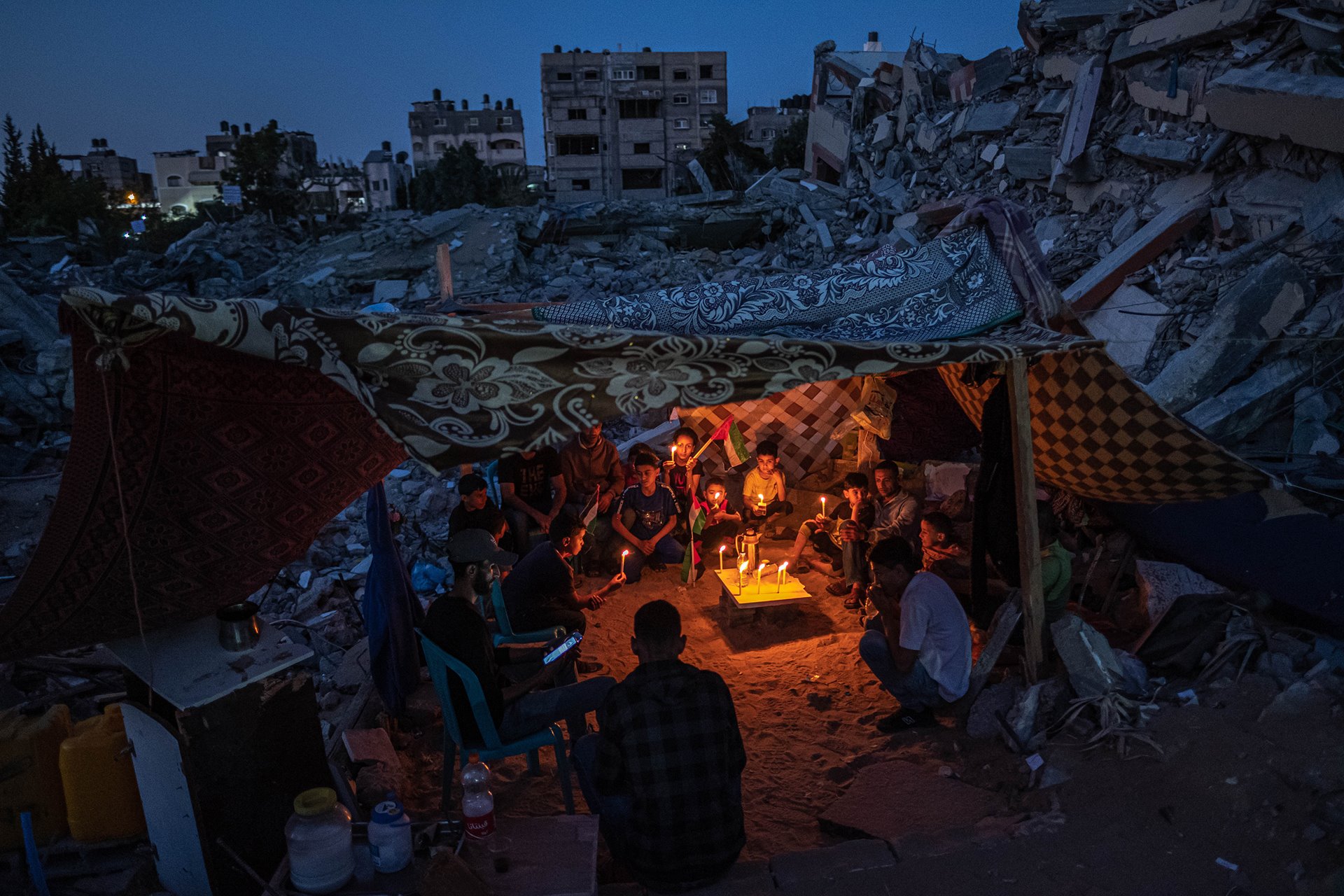
Singles
Palestinian Children in Gaza
Fatima Shbair, Palestine, Getty Images
Stories
The Cinema of Kabul
Bram Janssen, the Netherlands, The Associated Press
Long-Term Projects
Boundaries: Human-Tiger Conflict
Senthil Kumaran, India
Open Format
Blue Affair
Kosuke Okahara, Japan
Honorable Mention
Endless War
Dar Yasin, India, The Associated Press
EUROPE
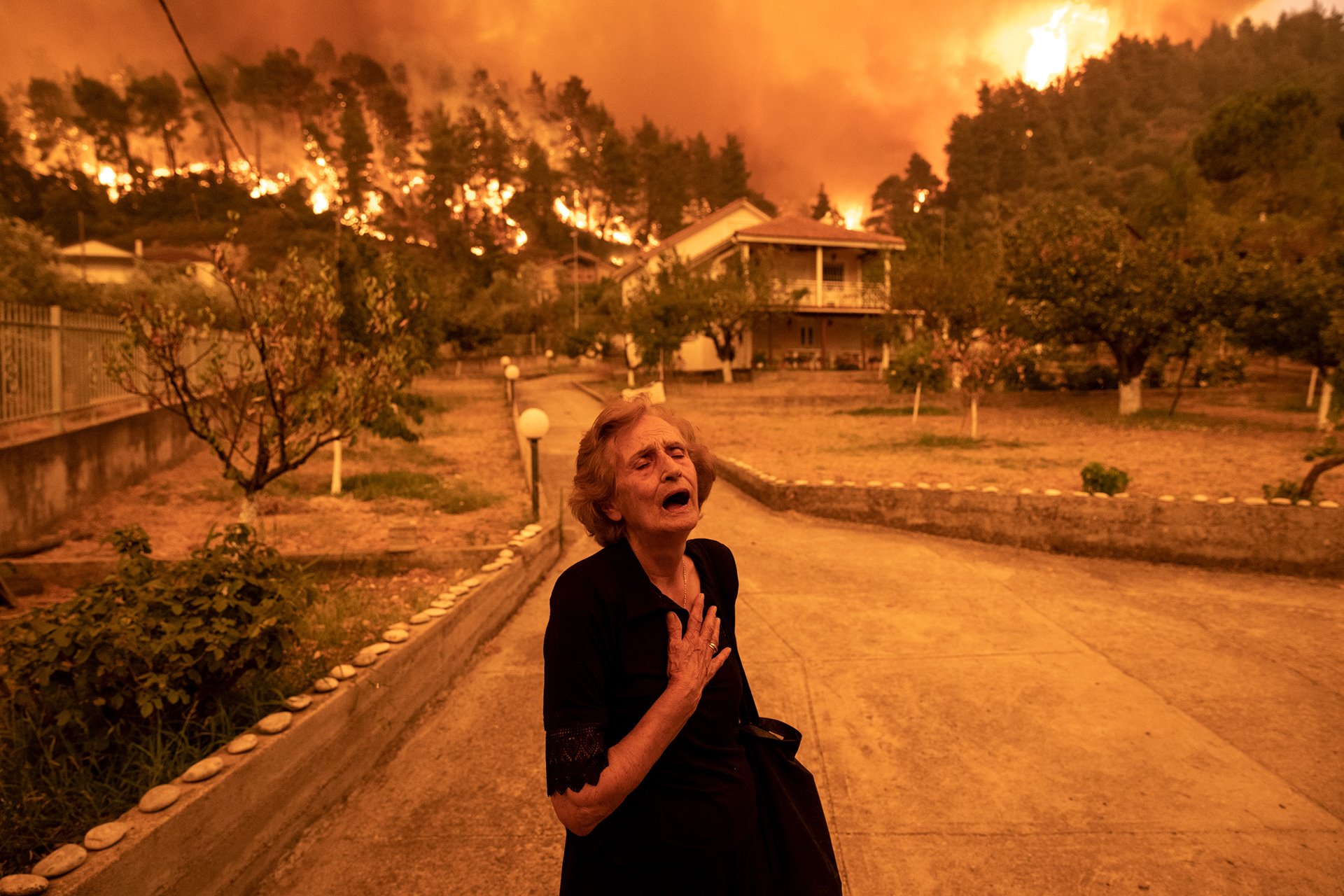
Singles
Evia Island Wildfire
Konstantinos Tsakalidis, Greece, for Bloomberg News
Stories
As Frozen Land Burns
Nanna Heitmann, Russia/Germany, Magnum Photos
Long-Term Projects
Ukraine Crisis
Guillaume Herbaut, France, Agence VU’
Open Format
The Book of Veles
Jonas Bendiksen, Norway
Honorable Mention
M+T
Mary Gelman, Russia
NORTH AND CENTRAL AMERICA
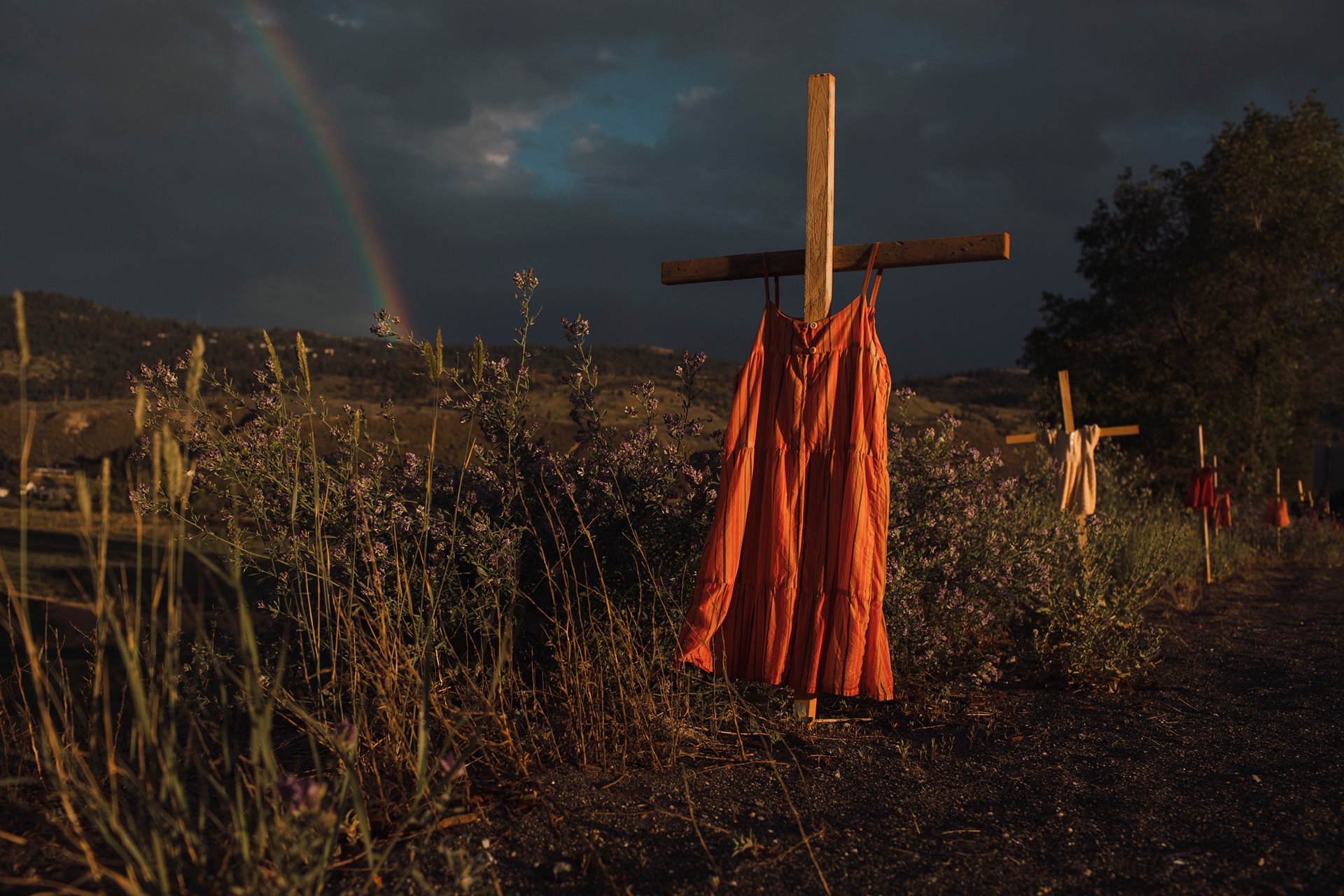
Singles
Kamloops Residential School
Amber Bracken, Canada, for The New York Times
Stories
The People Who Feed the United States
Ismail Ferdous, Bangladesh, Agence VU’
Long-Term Projects
Political Year Zero
Louie Palu, Canada
Open Format
The Flower of Time. Guerrero’s Red Mountain
Yael Martínez, Mexico
Honorable Mention
Amid High Mortality Rates, Black Women Turn to Midwives
Sarah Reingewirtz, United States, for Los Angeles Daily News and Southern California News Group
SOUTH AMERICA
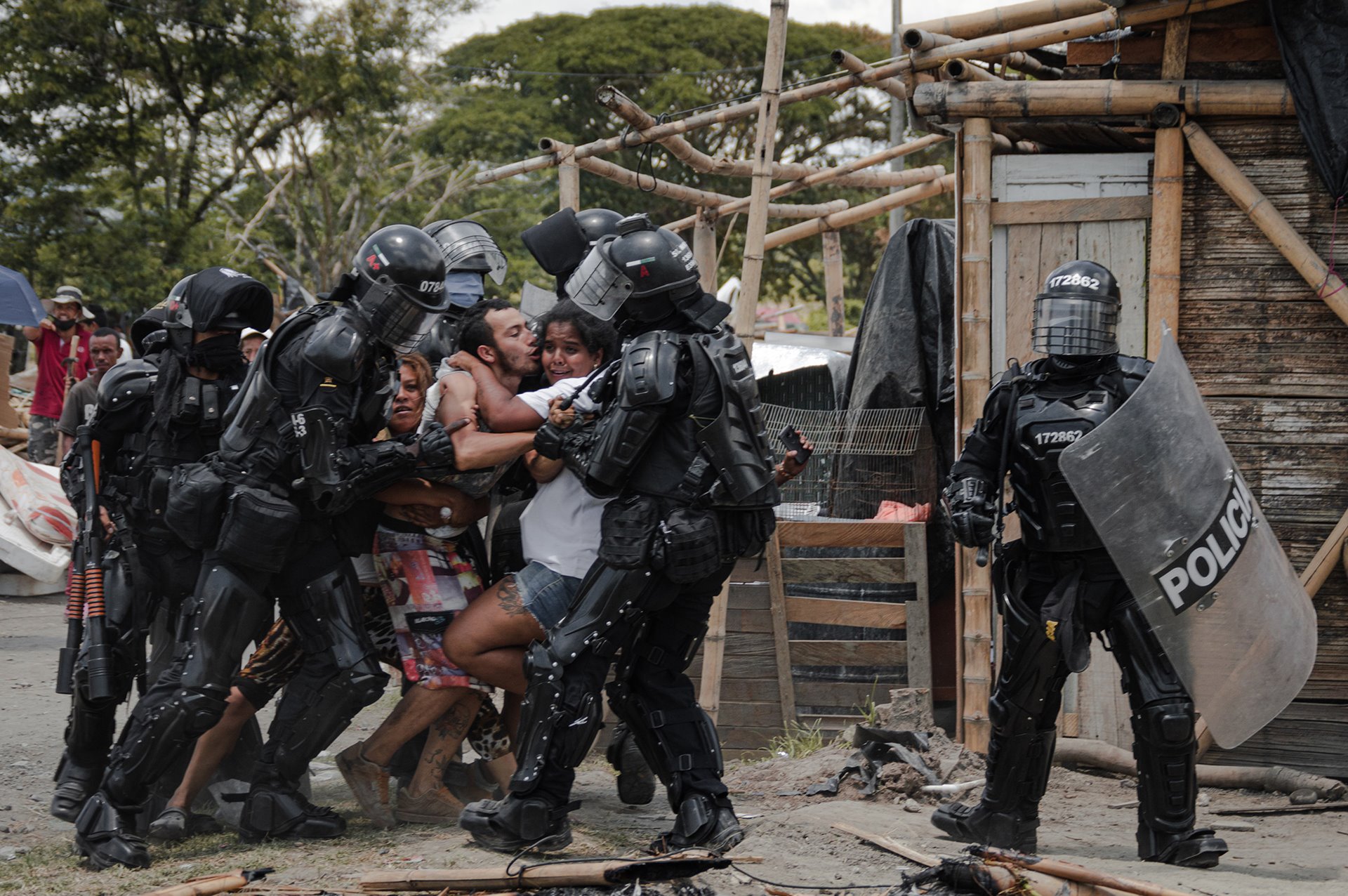
Evictions of residents of the San Isidro settlement began on 3 March 2021 ahead of construction of a railroad planned to connect the capital of the Risaralda district with Buenaventura, Colombia’s main Pacific seaport. Photo: Vladimir Encina.
Singles
San Isidro Settlement Eviction
Vladimir Encina, Colombia
Stories
The Promise
Irina Werning, Argentina, Pulitzer Center
Long-Term Projects
Amazonian Dystopia
Lalo de Almeida, Brazil, for Folha de São Paulo/Panos Pictures
Open Format
Blood is a Seed
Isadora Romero, Ecuador
Honorable Mention
A Portrait of Absence
Viviana Peretti, Italy
SOUTHEAST ASIA AND OCEANIA
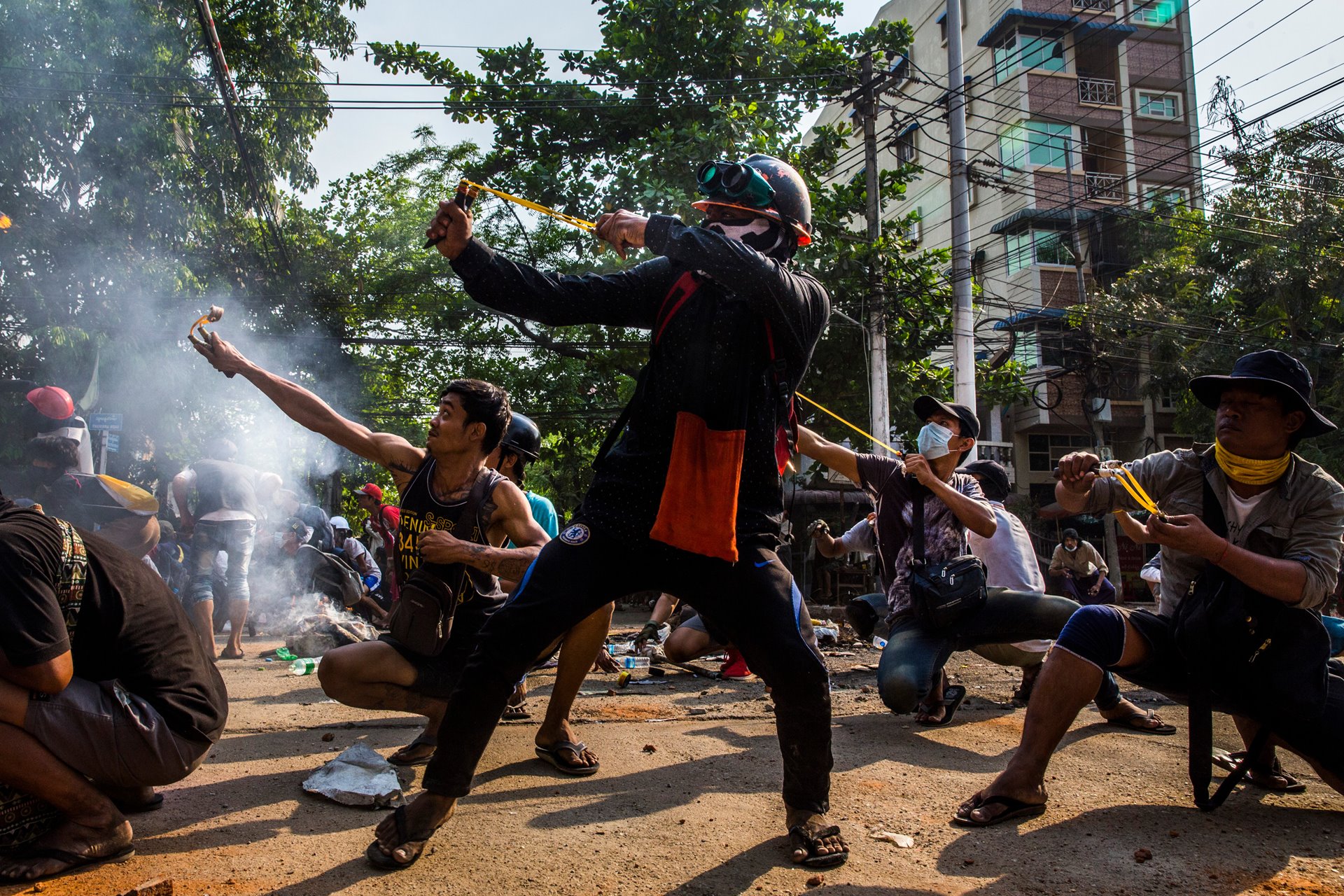
Singles
Slingshots
Anonymous, for The New York Times
Stories
Saving Forests with Fire
Matthew Abbott, Australia, for National Geographic/Panos Pictures
Long-Term Projects
Haze
Abriansyah Liberto, Indonesia
Open Format
The Will to Remember
Charinthorn Rachurutchata, Thailand
Honorable Mention
Uprising in Myanmar
Ta Mwe, Myanmar, Sacca Photo





Be First to Comment